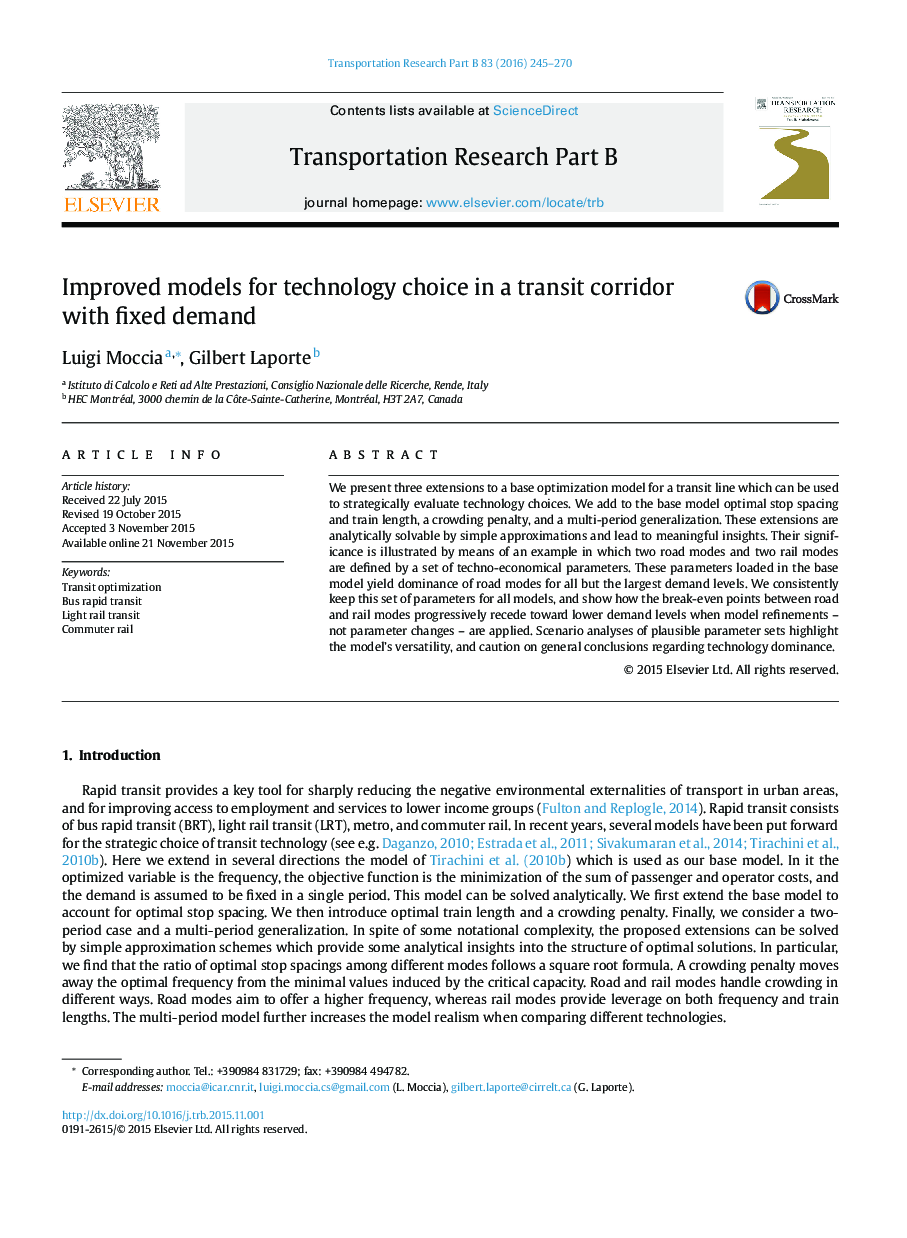| کد مقاله | کد نشریه | سال انتشار | مقاله انگلیسی | نسخه تمام متن |
|---|---|---|---|---|
| 1131608 | 1488961 | 2016 | 26 صفحه PDF | دانلود رایگان |
• We develop analytical transit line models that are solvable by approximation schemes.
• These models allow a strategic comparison of mode choices.
• We consider optimal stop spacing, train length, crowding cost, and multiple periods.
• The ratio of optimal stop spacings between modes follows a square root formula.
• Break-event points between road and rail models recede toward lower demand levels.
We present three extensions to a base optimization model for a transit line which can be used to strategically evaluate technology choices. We add to the base model optimal stop spacing and train length, a crowding penalty, and a multi-period generalization. These extensions are analytically solvable by simple approximations and lead to meaningful insights. Their significance is illustrated by means of an example in which two road modes and two rail modes are defined by a set of techno-economical parameters. These parameters loaded in the base model yield dominance of road modes for all but the largest demand levels. We consistently keep this set of parameters for all models, and show how the break-even points between road and rail modes progressively recede toward lower demand levels when model refinements – not parameter changes – are applied. Scenario analyses of plausible parameter sets highlight the model’s versatility, and caution on general conclusions regarding technology dominance.
Journal: Transportation Research Part B: Methodological - Volume 83, January 2016, Pages 245–270
